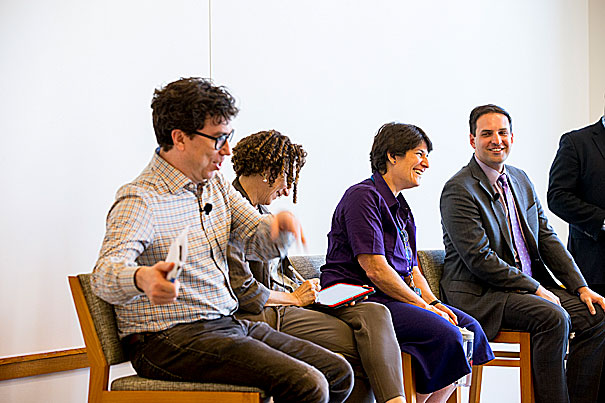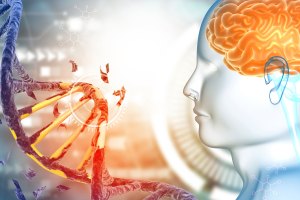Science & Tech
-

Rethinking — and reframing — superintelligence
Microsoft researcher says separating AI from people makes systems dangerous and unproductive
-
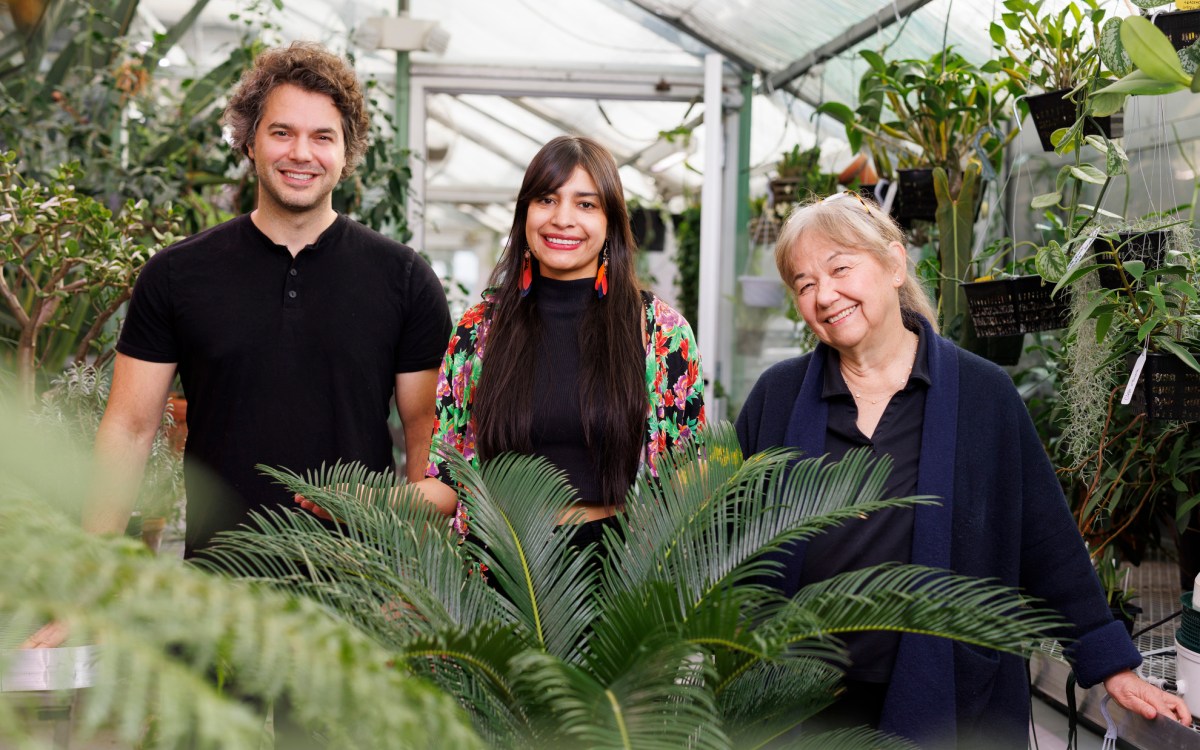
First, male gets heated up, then female, and then, you know
Study shows infrared radiation from plants serves as invitation to pollinating insects
-

‘Consciousness’
What we know and don’t know about the life of your mind
-
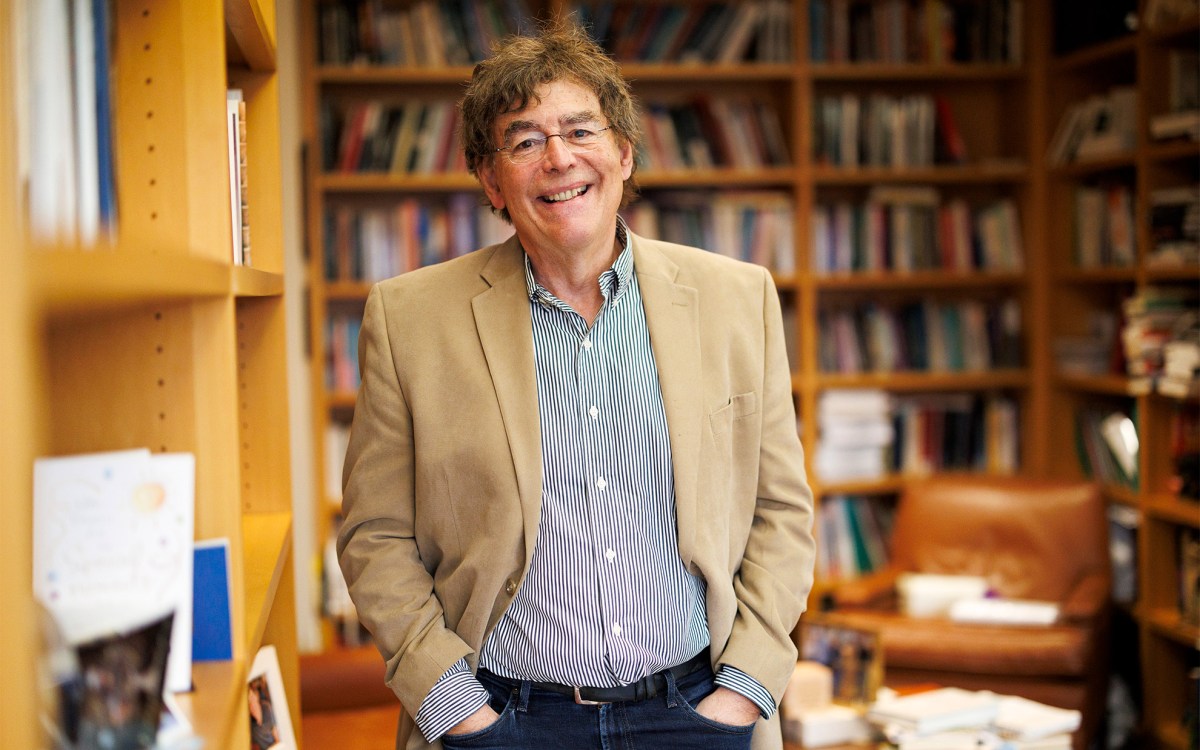
Science needs contrarians, and contrarians need support
Institute of Quantitative Social Science initiative tailored to researchers exploring provocative ideas
-

Cracking the code of why, when some choose to ‘self-handicap’
New research also offers hints for devising ways to stop students from creating obstacles to success

-
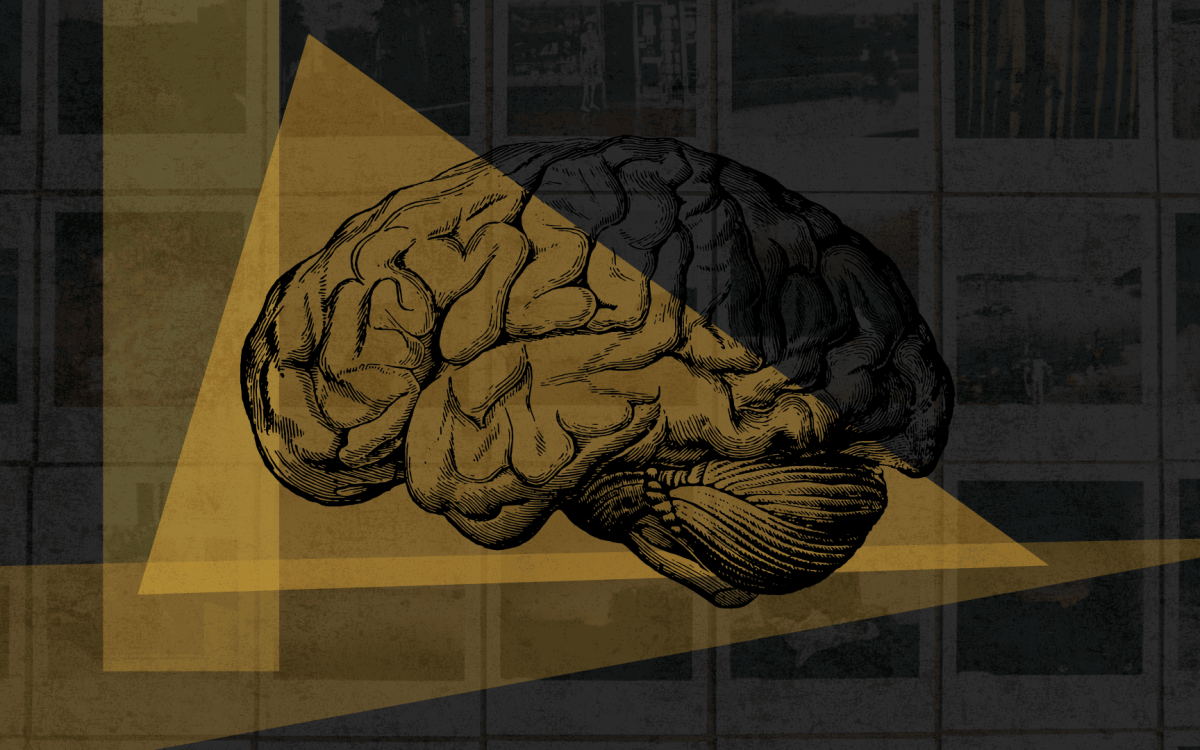
How memory works (and doesn’t)
In podcast, scientists explain why remembering is more reconstruction than replay
-
Study of radiation exposure in human gut offers hope
First study of radiation exposure in human gut with Wyss Institute’s organ-on-a-chip device offers hope for better protective drugs for cancer patients receiving radiation therapy.
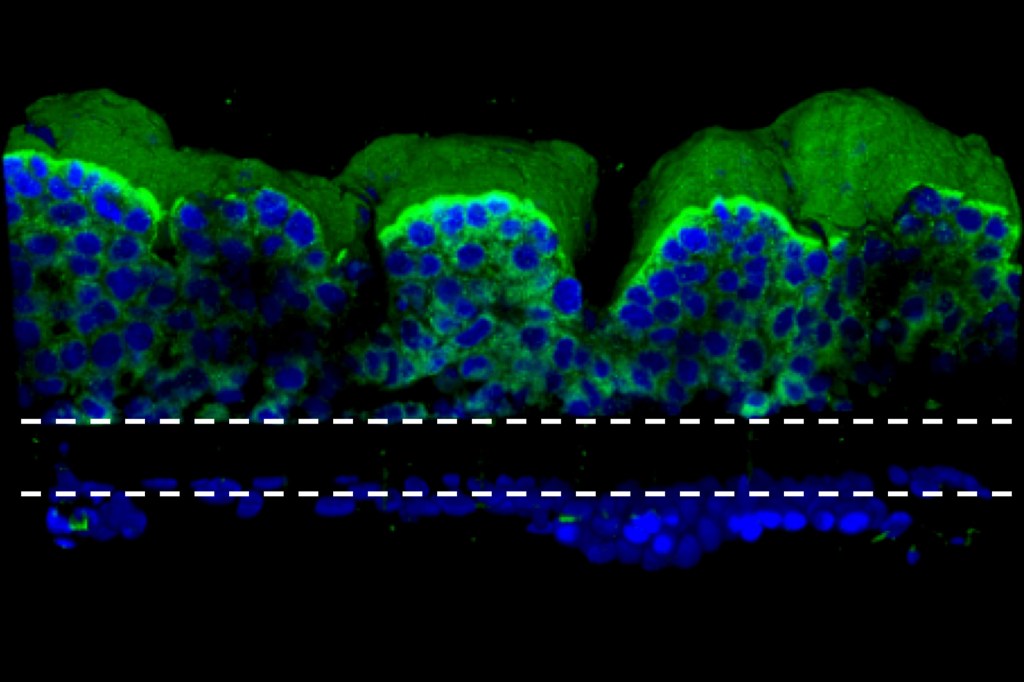
-
Seeding startups
For advanced technologies across the University, a new entrepreneur-in-residence program launched by Harvard Office of Technology Development might offer a crucial bridge to commercial development.
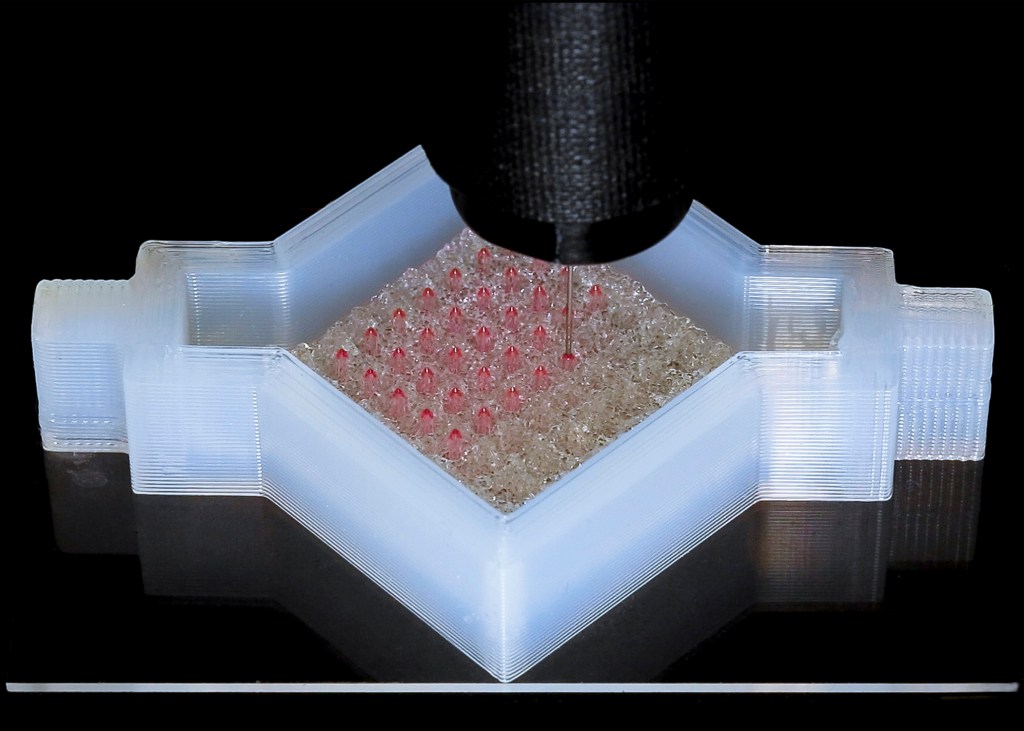
-
Still richer, smarter, greener, healthier, happier — but at a cost?
Economist Edward Glaeser says the global spread of urbanization can elevate humankind, but in his edX course he warns that we need creative thinking to ward off the drawbacks of high-density living.

-
Studying shark scales to design better drones, planes, turbines
Researchers use sharkskin as a model to create more lift in aerodynamic machines.

-
Expanding the reach of the bionic leaf
With eye on population growth, postdoc Kelsey Sakimoto teamed up with “bionic leaf” developers on a project to aid agriculture in developing world.
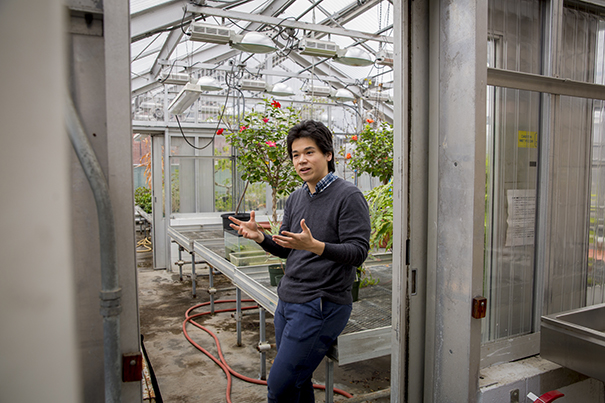
-
New grants for climate solutions
Seven new research projects have been awarded funding in the fourth round of grants from Harvard’s Climate Change Solutions Fund.
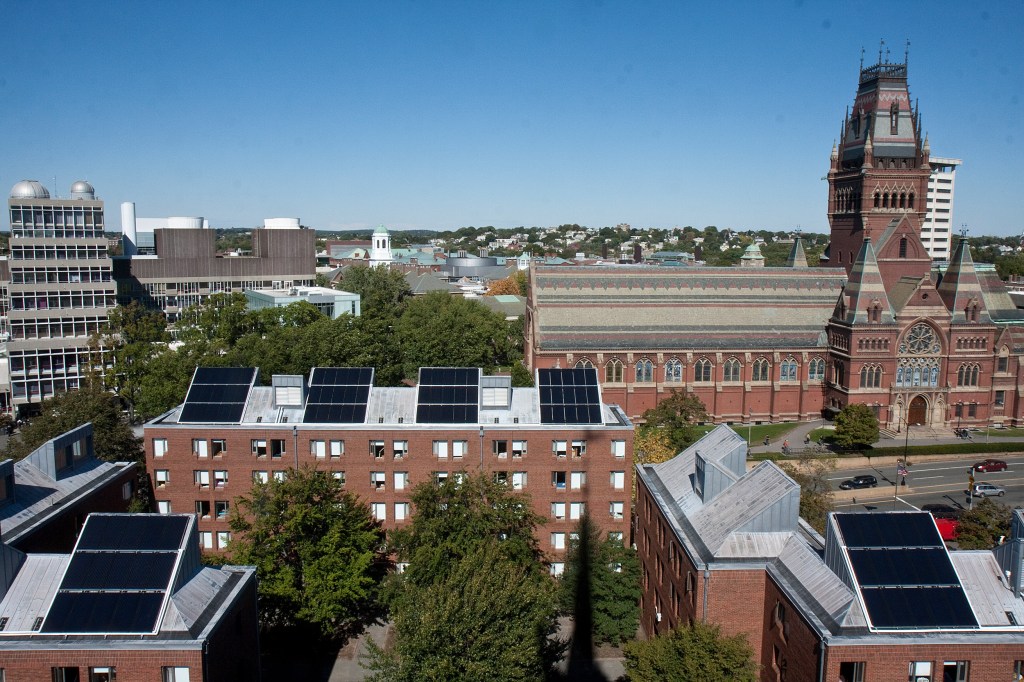
-
Picture-perfect approach to science
After creating a 3-D language called quon, which could be used to understand concepts related to quantum information theory, Harvard mathematicians now say the language offers tantalizing hints that it could offer insight into a host of other areas in mathematics, from algebra to Fourier analysis, and in theoretical physics from statistical physics to string theory.
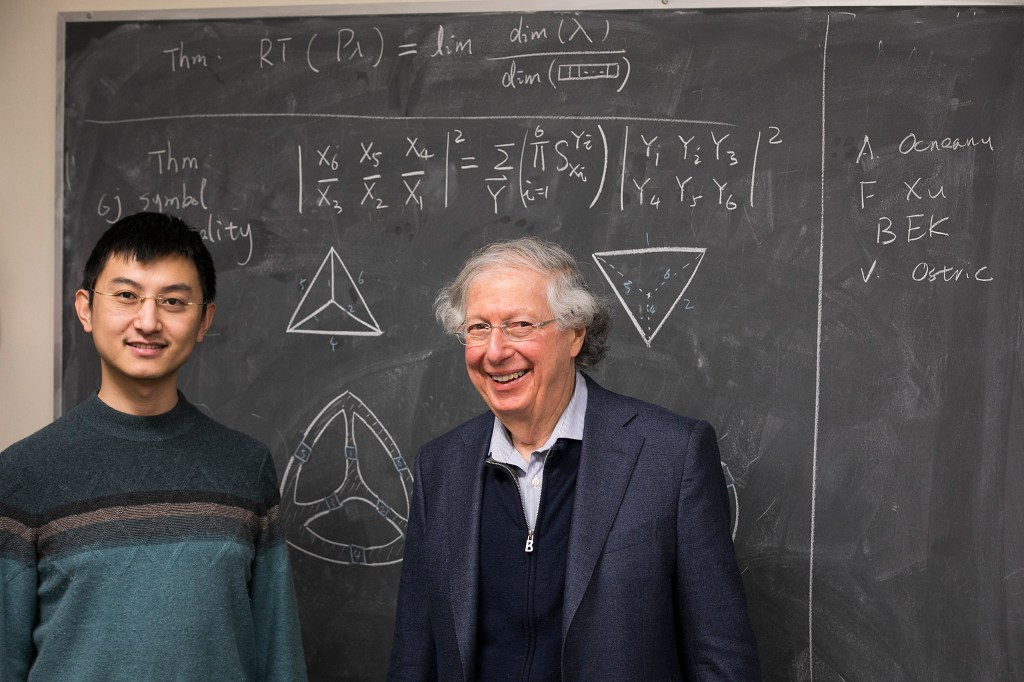
-
Onward and upward, robots
The first article in a series on cutting-edge research at Harvard explores advances in robotics.
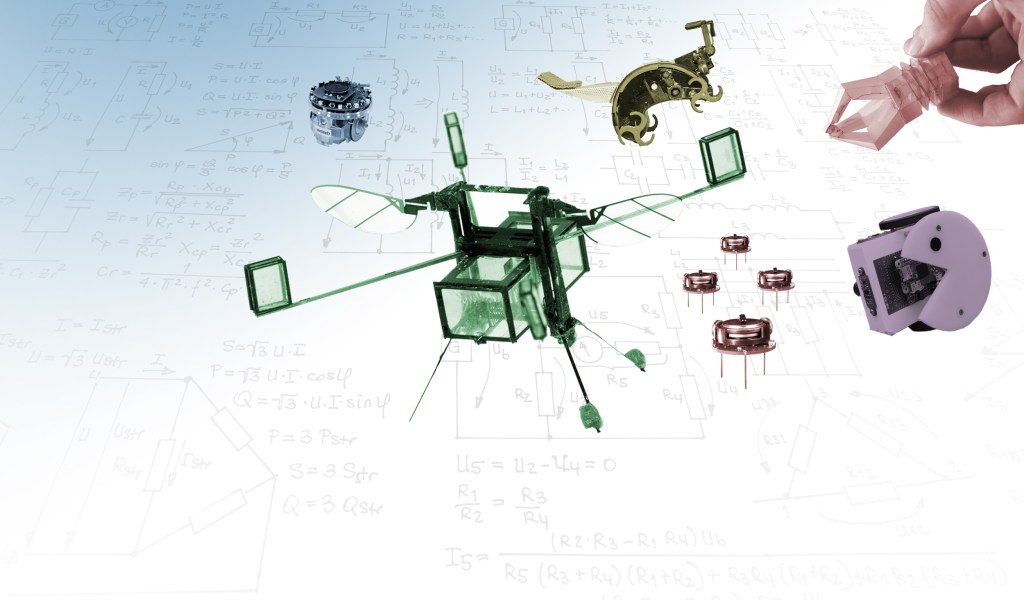
-
Origami-inspired robot combines precision with speed
A Harvard team has created the milliDelta robot, which can operate with high speed, force, and micrometer precision, making it ideal for retinal microsurgeries performed on the human eye.
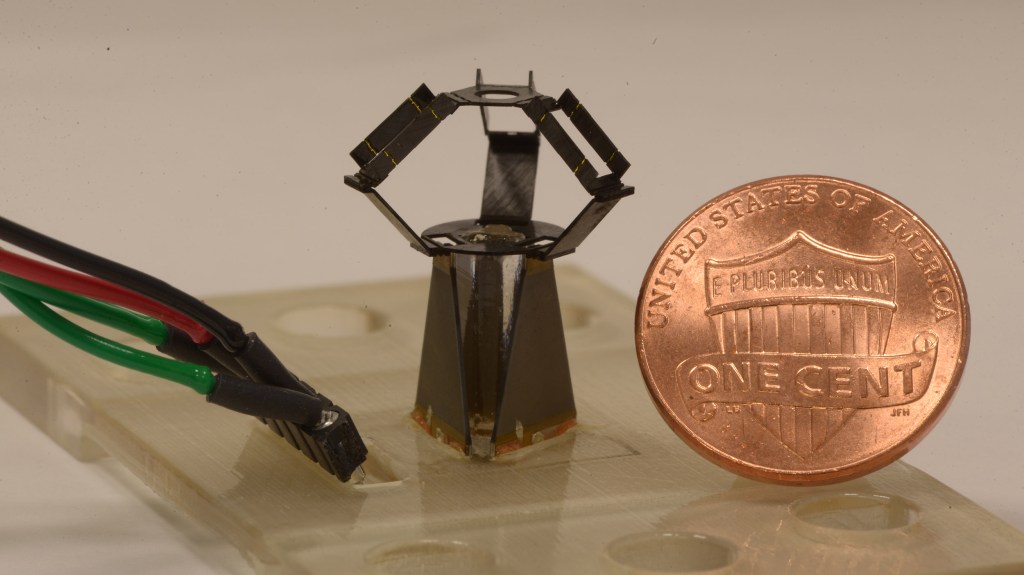
-
Beauty in the eye of the microscope
Through these images from Harvard researchers, the ordinary becomes extraordinary.
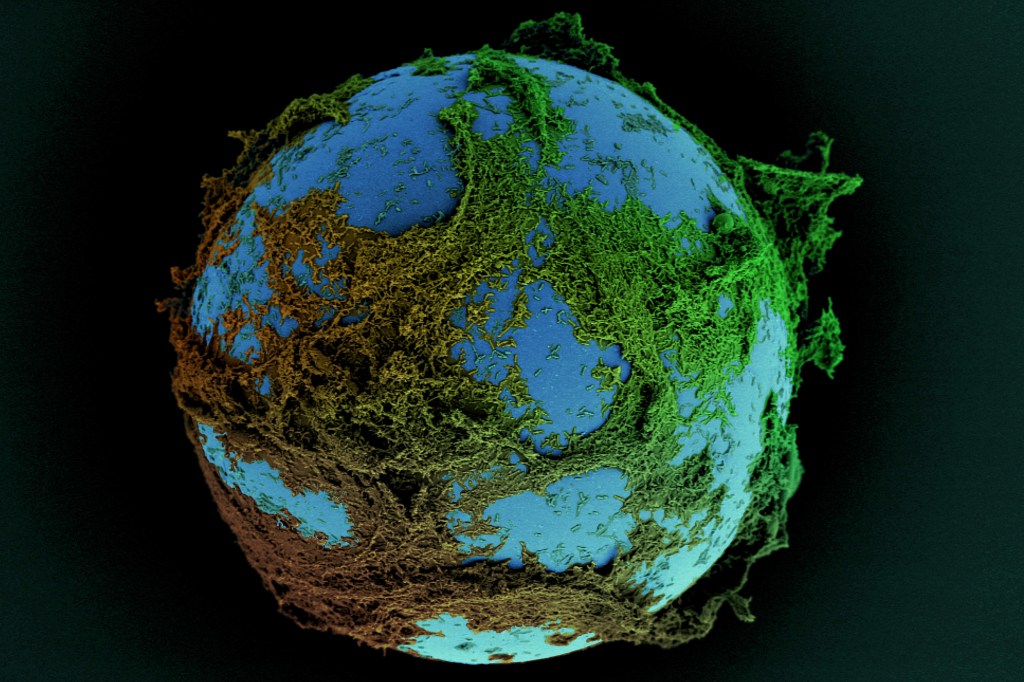
-
OpenScholar forms startup
OpenScholar will become a startup to expand University’s versatile web-publishing platform to next level.

-
For answers on coral conservation, she followed the fish
A new study suggests that efforts to restore coral reefs have a positive impact on fish populations, both short- and long-term.

-
As climate changes, so will wine grapes
Though vineyards might be able to counteract some effects of climate change by planting lesser-known grape varieties, scientists and vintners need a better understanding of the wide diversity of grapes and their adaptions.

-
Single metalens focuses all colors of the rainbow in one point
Harvard researchers have created the next generation of flat lenses, developing a “metalens” that can focus all the colors of the spectrum at the same time. The new design opens up the field for wearable optic devices.

-
Study uncovers botanical bias
Climate change studies that rely on herbarium collections need to account for biases in the data, new research says.
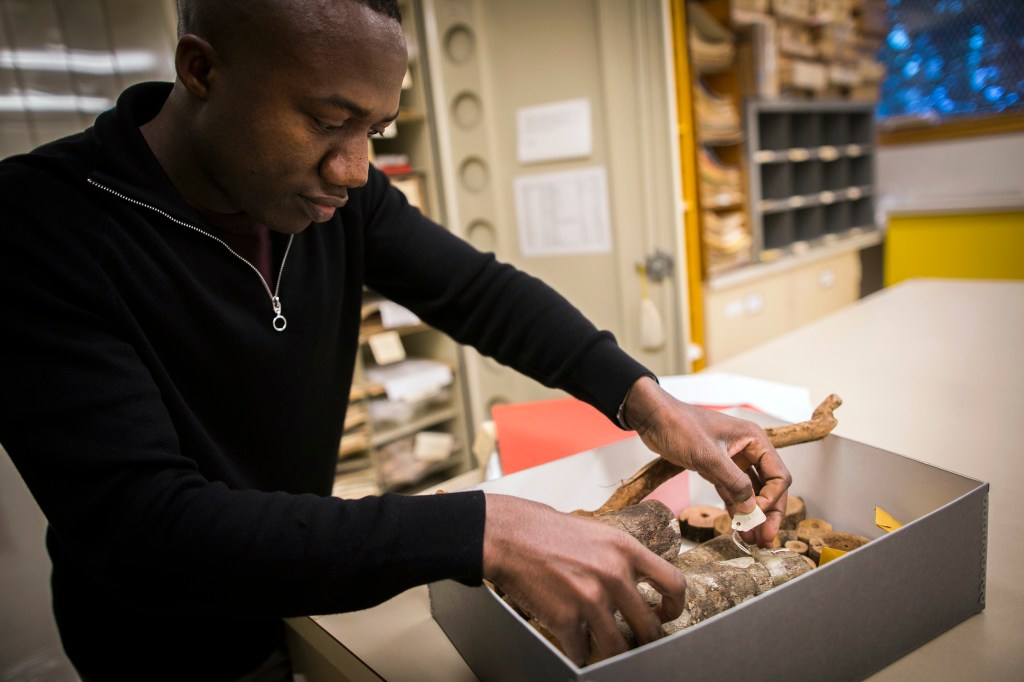
-
Improved image of supermassive black hole
Improved image allows astronomers to follow filament much closer to the galaxy’s central black hole.

-
How tall trees move sugars
A nine-member team of scientists, mostly from Harvard, has discovered that the hydraulic resistance to moving sugar-rich sap downward from the leaves of tall trees does not increase with the length of the tree as much as would be expected.
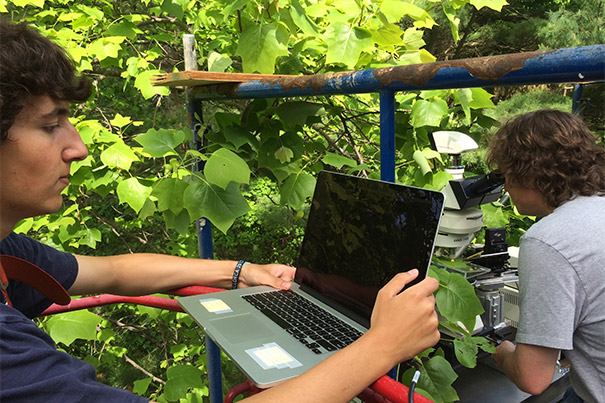
-
Single-stranded DNA and RNA origami go live
For the first time, researchers have enabled the design of complex single-stranded DNA and RNA origami that can autonomously fold into diverse, stable, user-defined structures, with the potential for precision drug delivery.
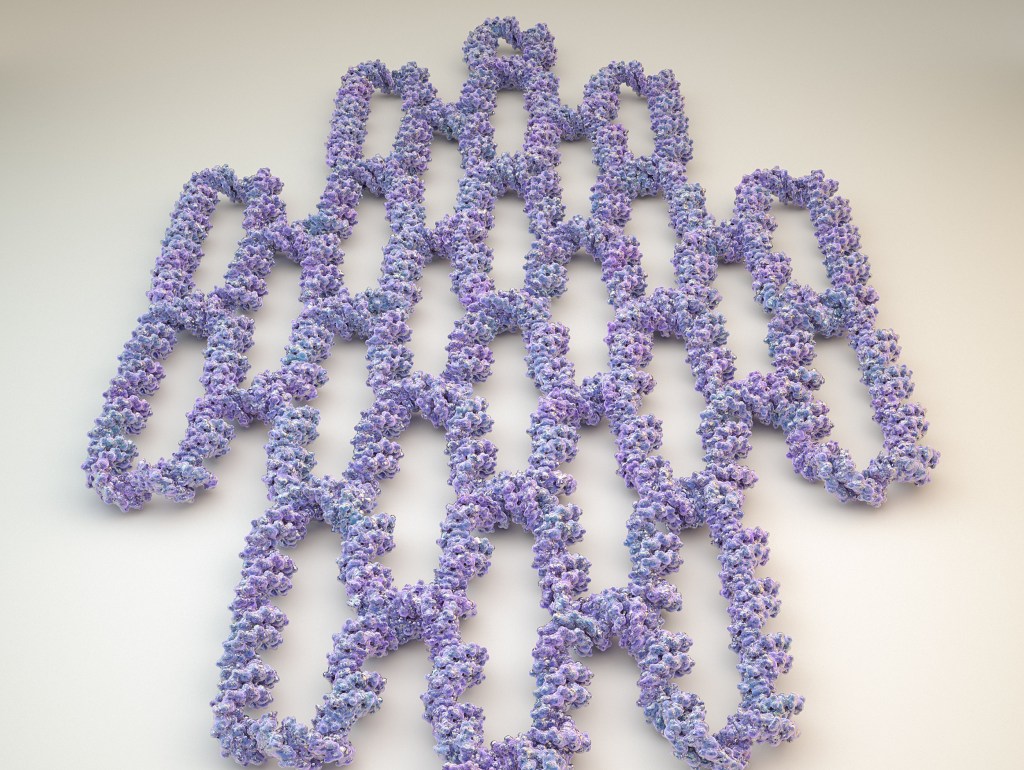
-
Feast for the mind
The General Education course “Ancient Lives” connects undergrads with the earliest civilizations.
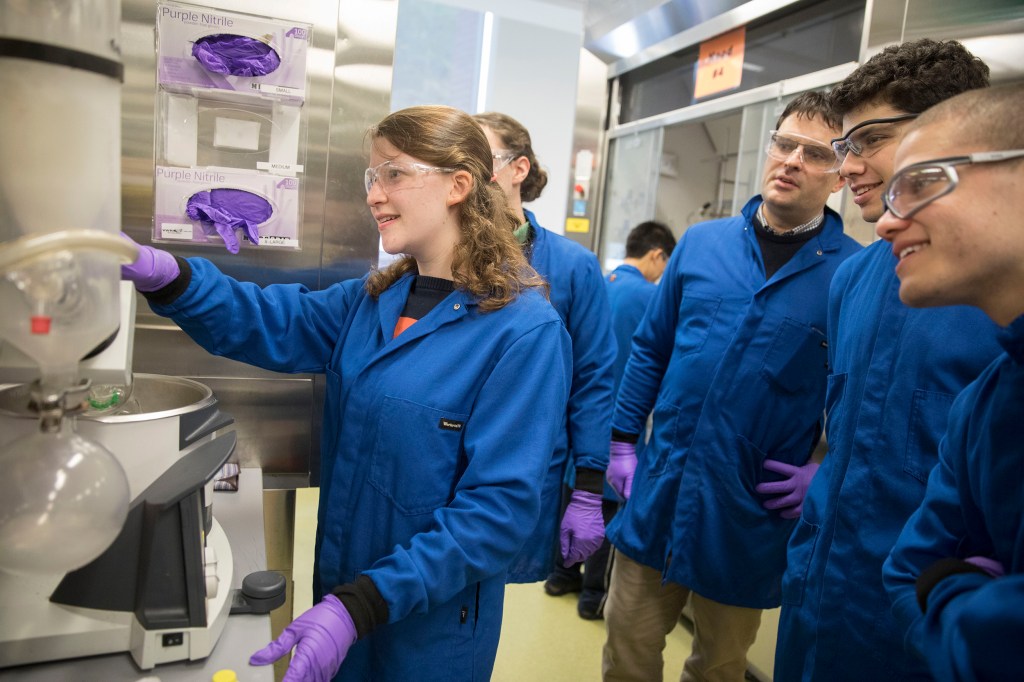
-
Opioid deaths jump
A new Harvard study shows people who end up in the hospital due to an opioid-related condition are four times more likely to die now than they were in 2000.

-
Climate made scary
Journalist David Wallace-Wells and others debated the most effective way to communicate climate urgency in a Harvard discussion.
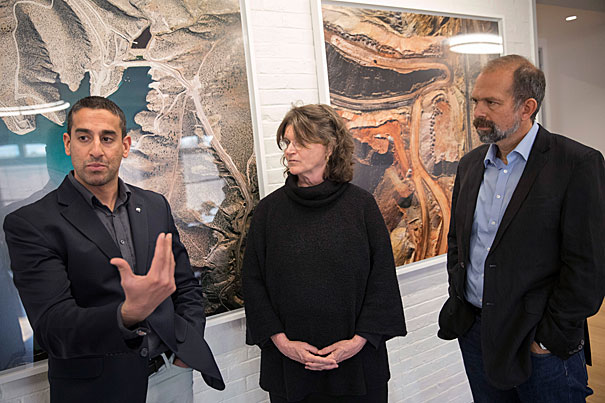
-
Researchers create quantum calculator
Researchers have developed a special type of quantum computer, known as a quantum simulator, that is programmed by capturing super-cooled rubidium atoms with lasers and arranging them in a specific order, then allowing quantum mechanics to do the necessary calculations.
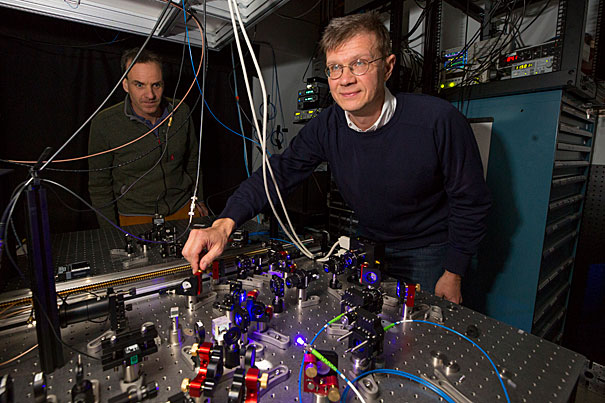
-
Skin pigmentation is far more complex than thought
The genetics of skin pigmentation become progressively complex the closer populations reside to the equator.
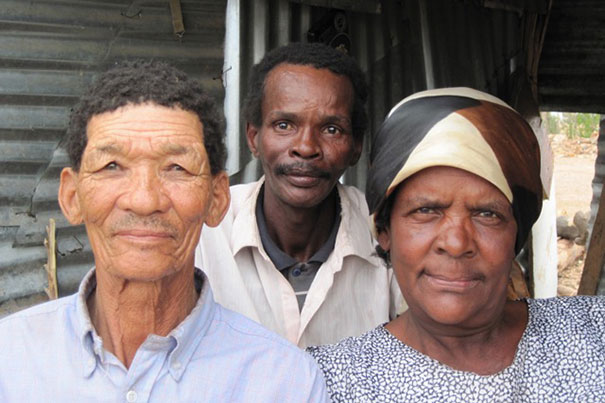
-
Babies understand cost-reward tradeoffs behind others’ actions, study says
Harvard and MIT study reveals that babies understand the cost-reward tradeoffs behind others’ actions.
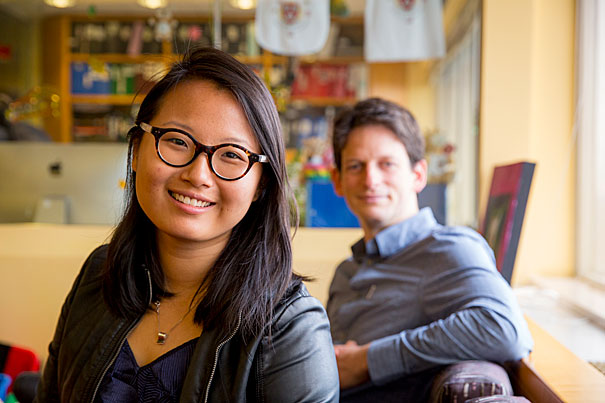
-
Students help groups to pursue climate action
Harvard living lab course works to find practical alternatives to carbon use.

-
Small media, big payback
Researchers found that if just three outlets write about a particular major national policy topic, discussion of that topic across social media rises by more than 62 percent.

-
The selfie’s gone, but the damage is done
New HBS research examines whether we are less inhibited when posting on temporary social media and how others perceive the posts.
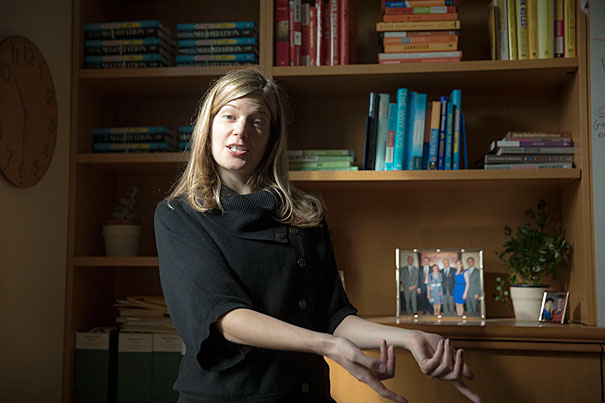
-
History under the microscope
Researchers delivered lectures on recent findings to launch the Max Planck-Harvard Research Center for the Archaeoscience of the Ancient Mediterranean.
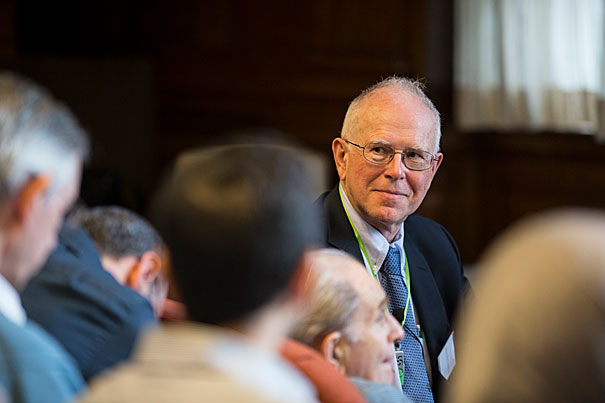
-
First glimpse of a kilonova, and Harvard was there
Marking the beginning of a new era in astrophysics, scientists for the first time have detected gravitational waves and electromagnetic radiation, or light, from the same event. Harvard researchers were pivotal in the work.

-
When machines rule, should humans object?
Harvard scholars shared concerns and ideas in a HUBweek panel titled “Programming the Future of AI: Ethics, Governance, and Justice.”
